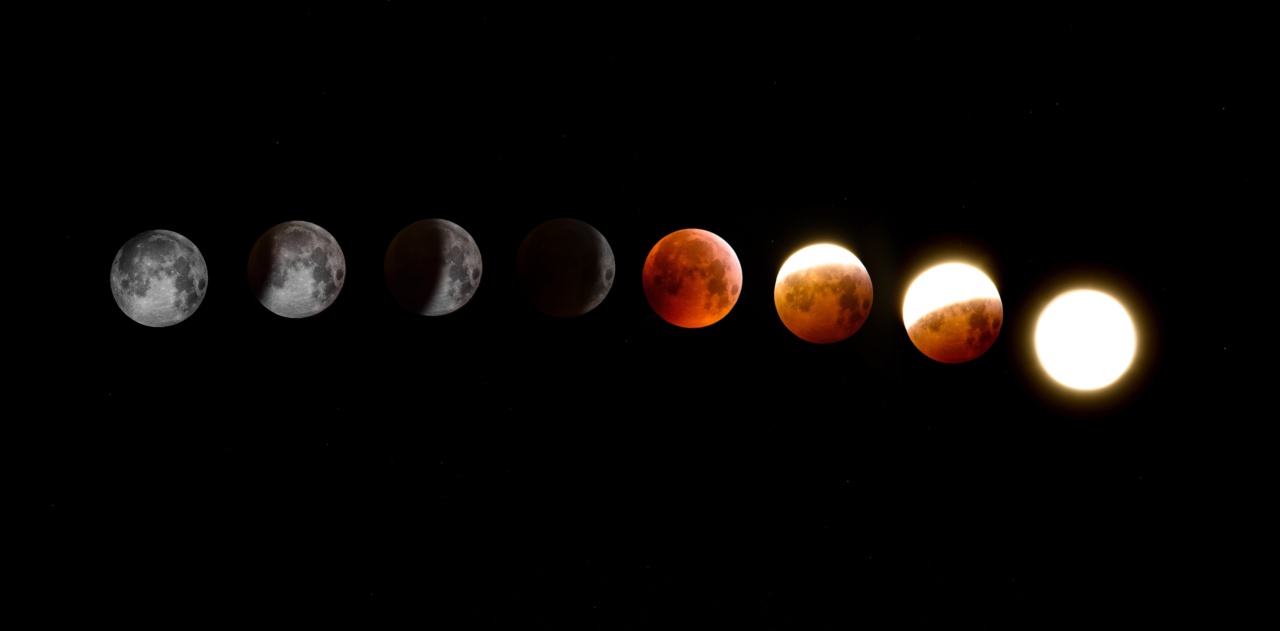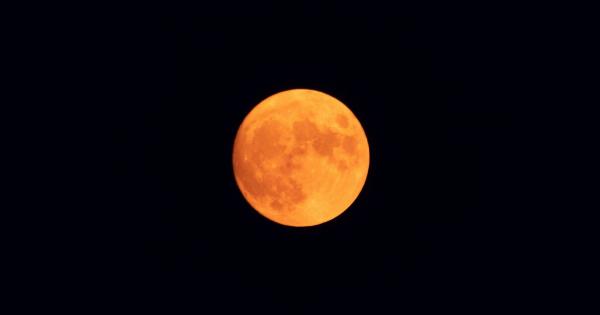The full moon is a naturally occurring phenomenon that has fascinated humans for centuries. For many people, the full moon holds a certain significance and its appearance is believed to have an effect on our bodies.
While scientific research on the topic is limited, there is evidence to suggest that the full moon can indeed impact our health and well-being.
How Does the Full Moon Affect Our Sleep?
Many people report having trouble sleeping during the full moon. While some may attribute this to psychological factors or superstition, there is also a scientific explanation.
Studies have found that during the full moon, our bodies may produce less melatonin, a hormone that regulates sleep.
Additionally, the light emitted by the full moon can disrupt our bodies’ circadian rhythms and alter our sleep patterns. This can lead to insomnia, restlessness, and other sleep-related issues.
Scientists believe that the same is true for animals, as nocturnal creatures may become more active during a full moon.
Can the Full Moon Affect Our Menstrual Cycles?
Perhaps one of the most well-known beliefs surrounding the full moon is that it can affect women’s menstrual cycles.
While the scientific evidence on this topic is inconclusive, many women report experiencing changes in their periods during the full moon.
One theory is that the full moon’s gravitational pull, which affects the tides, may also impact the fluids in our bodies. This could potentially alter the timing and flow of menstrual cycles.
However, there is little research to support this theory.
Another possibility is that the psychological impact of the full moon may play a role. For centuries, the full moon has been associated with feminine energy and fertility.
It’s possible that these cultural beliefs have led women to subconsciously sync their menstrual cycles with the lunar cycle.
The Full Moon’s Effect on Mood
Many people report feeling more anxious, irritable, or emotionally charged during the full moon. While the evidence on this topic is mixed, there is some scientific evidence to suggest that the full moon may affect our mood and behavior.
A 2011 study published in the Journal of Affective Disorders found that there was a slight increase in psychiatric emergency room visits during the full moon.
Additionally, a small study published in the journal Biological Rhythm Research found that participants reported feeling more agitated and anxious during the full moon.
It’s not clear why the full moon may have this effect on our mood.
Some theories suggest that the extra light from the full moon may disrupt our bodies’ natural rhythms and affect our production of hormones such as serotonin, which can impact our mood.
Can the Full Moon Affect Our Physical Health?
The full moon has also been linked to an increase in medical incidents, such as a higher number of hospital admissions and emergency visits. While the evidence on this topic is mixed, there are a few possible explanations for this phenomenon.
One theory is that the gravitational pull of the moon may affect the fluids in our bodies. This could potentially lead to an increase in swelling and inflammation, which could exacerbate conditions such as arthritis or asthma.
Additionally, studies have found that the full moon may be associated with an increase in heart attacks and strokes.
It’s also possible that the full moon’s impact on our sleep, mood, and stress levels could indirectly affect our physical health.
For example, if the full moon disrupts our sleep and causes us to feel more stressed or anxious, this could lead to a weaker immune system and make us more susceptible to illness.
The Science Behind Supermoons and Blood Moons
While the full moon itself has a noticeable impact on our bodies, supermoons and blood moons are believed to have even stronger effects.
Supermoons occur when the full moon is at its closest point to Earth, and blood moons occur during a total lunar eclipse.
During a supermoon, the moon’s gravitational pull is even stronger than usual.
This can potentially lead to more extreme effects on our bodies, such as higher tides, stronger seismic activity, and even a slight increase in the rate of car accidents.
During a blood moon, the Earth’s shadow falls on the moon, causing it to appear red.
Many people believe that blood moons have a mystical or spiritual significance, but from a scientific standpoint, there is little evidence to suggest that they have any greater impact on our bodies than a regular full moon.
The Bottom Line
While the scientific evidence on the full moon’s effect on our bodies is limited, there is some evidence to suggest that it can indeed impact our health and well-being.
From disruptions to our sleep and menstrual cycles to changes in our mood and behavior, the full moon holds a certain significance that cannot be ignored.
However, it’s important to note that not everyone experiences the same effects from the full moon. Additionally, many of the reported effects may be due to psychological factors or cultural beliefs rather than any direct physical impact.































